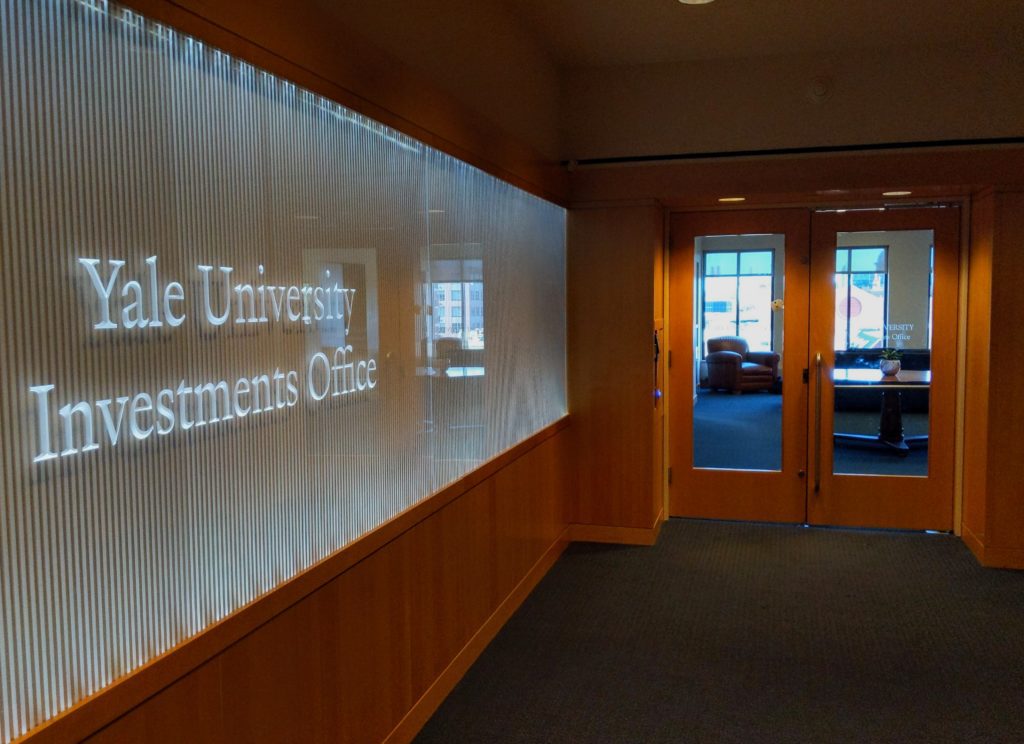In partnership with:

Foreword from Knight Foundation and Center for Business and Human Rights, New York University Stern School of Business
OVERVIEW
An interim study on the degree to which the endowments of the country’s wealthiest private and public colleges and universities are hiring asset management firms owned by women and racial or ethnic minorities
This study is part of Knight Foundation’s ongoing research series studying diversity in asset management.
The first step to equity is transparency. Without a shared understanding of the facts, we cannot know where we stand, where we want to go or whether we are making any progress.
In that spirit, in the fall of 2021, Knight and Global Economics Group (GEG) embarked on a study to assess the degree to which the endowments of the country’s wealthiest 25 private and 25 public colleges and universities hire asset management firms owned by women and racial or ethnic minorities. Our partner in this study is the Center for Business and Human Rights at New York University’s Stern School of Business (“the Center”), the first human rights center housed in a business school.
We applaud the 16 of 50 colleges and universities that participated in this initial Knight Diversity of Asset Managers (KDAM) study of higher education—12 by providing data for GEG’s independent analysis and four by providing summary statistics from their own internal analysis. Collectively these 16 schools hold 54% of the group’s endowment assets, or $314 billion. They deserve special recognition and our thanks for their commitment to transparency. These schools are:
University of California System
University of Chicago
University of Colorado
Columbia University
Duke University
University of Illinois
Michigan State University
Princeton University
Rice University
Rutgers University
University of Texas System
Vanderbilt University
Self-reporting Schools:
Dartmouth College
Harvard University
University of Pennsylvania
Stanford University
At the same time, it is disheartening and revealing that 34 institutions elected not to participate, denying any visibility into who is managing the $273 billion in assets they hold. These schools are:
Boston College
Brown University
California Institute of Technology
Carnegie Mellon University
Cornell University
Emory University
University of Florida
Georgia Institute of Technology
Indiana University
University of Iowa
Johns Hopkins University
Kansas University
The University System of Maryland
Massachusetts Institute of Technology
University of Michigan
University of Minnesota
University of Missouri System
University of Nebraska
New York University
University of North Carolina
Northwestern University
University of Notre Dame
The Ohio State University
Pennsylvania State University
University of Pittsburgh
Purdue University
University of Southern California
University of Virginia
Virginia Commonwealth University
Washington University
University of Washington
Williams College
University of Wisconsin
Yale University
These 50 institutions of higher learning hold enormous power to influence change in our society, including via their investment decisions. For example, their choice of asset management firms can provide important job opportunities for their graduates. It is a natural fit for schools to invest with firms whose teams are representative of their students and alumni. But without more complete data, we can’t fully assess how well asset management firms are tapping into underutilized, but high-performing talent that can help them achieve their investment goals.
Due to the low response rate, we are publishing the information we have without drawing conclusions about the wider field. At the same time as we are grateful for the transparency of some institutions, we also want to alert the public to the opacity that remains. We are committed to securing further participation and, when we do, plan to publish a final report.
Knight and the Center have been historically committed to the issue of diverse asset management. More than 10 years ago, Knight was asked publicly how much of its endowment was invested with diverse-owned asset management firms. The answer at the time amounted to a tiny fraction—just $7.5 million managed by a single firm. Today, more than a third of Knight Foundation’s endowment—over $1 billion—is overseen by asset management firms owned primarily by women and/or people of color. Passing this milestone required a decade of careful planning and consistent execution. In addition, Knight Foundation is enormously proud that three other foundations join us in having over 30% of their portfolios invested with diverse-owned firms: Silicon Valley Community Foundation, Tulsa Community Foundation/George Kaiser Family Foundation and Casey Family Programs.
As part of Knight’s ongoing research series studying diversity in asset management, in 2020 and 2021, GEG also analyzed the use of diverse asset managers by the nation’s largest charitable foundations. In its most recent study, GEG was able to analyze the assets of 30 of the nation’s top 55 foundations, as 19 actively provided data and 11 included the necessary information in their IRS-990 PF. In addition, three foundations provided self-reported statistics.
Since 2017, the Center has been working with university leaders, including investment officers, to promote greater diversity in the asset management firms the schools work with. In April 2018, the Center hosted representatives from 13 universities to explore ways to promote the inclusion of more firms owned by women or underrepresented minorities. The Center continues to build on those relationships, and this survey is an extension of its efforts.
We encourage colleges, universities, foundations and corporations to follow the lead of the 16 academic participants and be more transparent about the management of their assets. These institutions will play a central role in shaping the 21st-century global economy and represent huge opportunities for college and university graduates. Transparency and better data would help us improve our fields while better preparing society to meet future challenges and opportunities.
Juan Martinez, Vice President/Chief Financial Officer
Ashley Zohn, Vice President/Learning and Impact
The John S. and James L. Knight Foundation
Michael Posner, Director
Kerin McCauley, Senior Associate Director
Center for Business and Human Rights, New York
University Stern School of Business
EXECUTIVE SUMMARY
This interim study assesses the representation of women- and racial or ethnic minority-owned investment firms (“diverse-owned firms”)1 among those used by the country’s wealthiest 25 private and 25 public college and university endowments. The endowments collectively hold $587 billion in total assets.
Twelve of the 50 institutions fully participated in the study by providing their asset manager rosters for independent analysis. Table A provides the results for those institutions. These 12 institutions allocate $97.36 billion in assets under management (“AUM”) to U.S.-based firms that are eligible for analysis in this study (“Analyzed AUM”) as of the fiscal year ending June 30, 2021.2
* “Minority” in the available datasets refers to people who are Hispanic, Black, Asian and “other,” which includes Native American, Pacific Islanders and others. We are unable to provide a breakdown by race and ethnicity due to data limitations.
Additionally, four private institutions chose to self-report diversity statistics using this study’s definitions.3 Table B provides the results for those institutions.
* Self-reporting institutions only provided summary statistics without underlying data.
The remaining 34 institutions with $273 billion in total assets elected not to participate in the study.
















